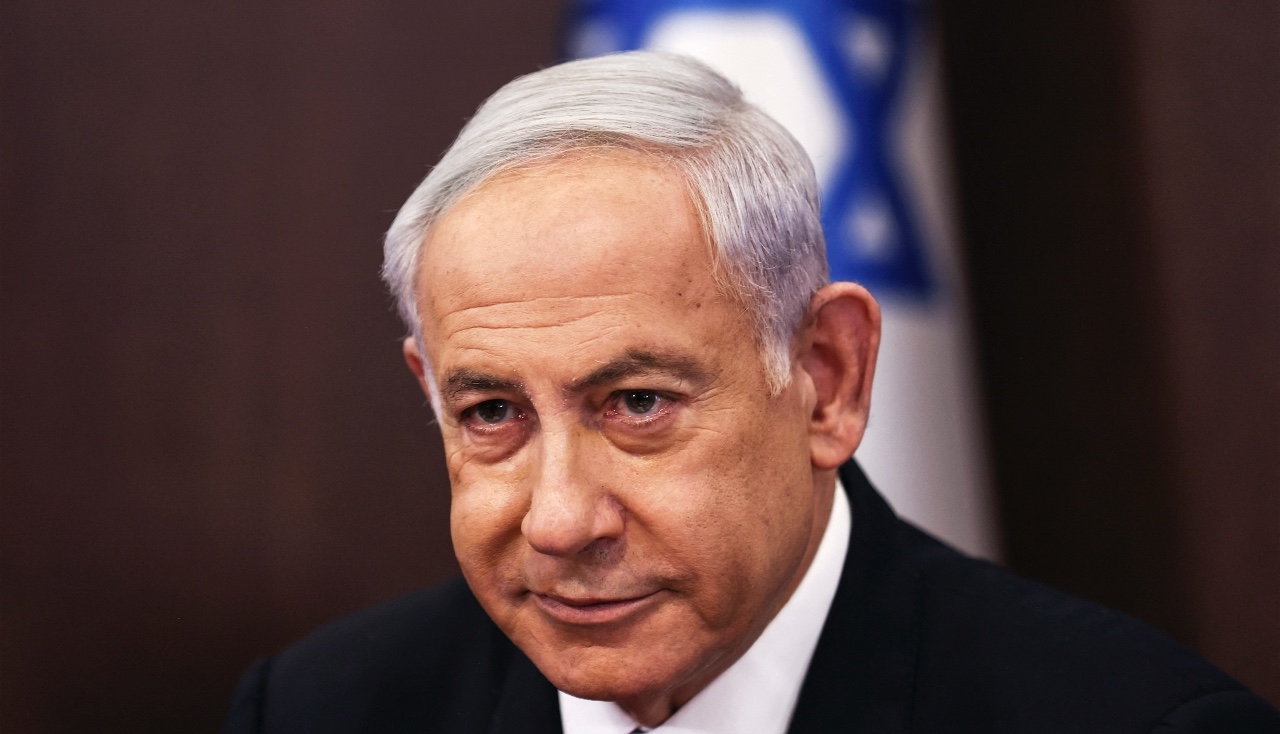Israel's Benjamin Netanyahu backtracks on decision to fire defence minister

Israeli Prime Minister Benjamin Netanyahu announced he would reverse his earlier decision to sack his defence minister, Yoav Gallant, amid massive protests in the country and heightened tensions in the region.
"There have been disputes between us, even difficult disputes on certain subjects, but I have decided to leave these disputes behind us," he said.
"Gallant remains in his post and we will continue to work together for the safety of the citizens of Israel.”
Two weeks ago, Netanyahu pledged to dismiss Gallant, a lawmaker from his right-wing Likud party, after he spoke out against the prime minister's highly-disputed plan to overhaul Israel's judicial system.
Israeli analyst Meron Rapoport told Middle East Eye at the time that the sacking was "a desperate, extreme move by Netanyahu".
Stay informed with MEE's newsletters
Sign up to get the latest alerts, insights and analysis, starting with Turkey Unpacked
"Never have we seen something like this - to fire a minister in such a sensitive position, not even for voting, just for saying that he wants to stop the legislation," Rapoport said.
Israel has been wracked by countrywide protests, which caused highway closures and a shutdown of Ben Gurion airport, against the planned judicial overhaul. Military reservists also warned that they would not respond to call-ups should the overhaul pass.
Over the weekend, leaked US intelligence documents alleged that the Israeli spy body Mossad secretly encouraged people to join the protests.
The documents, dating back to "early to mid-February", state that Mossad's leadership had "advocated for Mossad officials and Israeli citizens to protest the new Israeli government's proposed judicial reforms including several explicit calls to action that decried the Israeli government”.
The Israeli prime minister's office on Sunday condemned the report on behalf of Mossad and described them as "mendacious and without any foundation whatsoever".
Netanyahu’s reversal comes at a time of rising tensions, following repeated Israeli attacks on Palestinian worshippers in Jerusalem's Al-Aqsa Mosque.
The brutal assault and images of Israeli forces beating worshippers prompted outrage in the Arab world and was denounced by regional countries like the UAE that have embraced a normalisation of ties with Israel.
Rockets were fired from Gaza and Lebanon towards Israel on Thursday, in an apparent response to the assaults on worshippers. Israel launched limited air strikes in return.
Palestinian shootings at Israeli targets in the West Bank also spiked in the wake of Al-Aqsa attacks. Two soldiers were wounded in separate shootings in Hebron and Jerusalem on Wednesday and Thursday.
Palestinians in the West Bank were already facing one of the deadliest starts to a year in two decades even before the attacks on Al-Aqsa.
Israeli forces have killed at least 94 people, including 16 children, since the start of January - at a rate of nearly one fatality a day.
Palestinians have killed at least 16 Israelis, including four children, in the same period.
Middle East Eye delivers independent and unrivalled coverage and analysis of the Middle East, North Africa and beyond. To learn more about republishing this content and the associated fees, please fill out this form. More about MEE can be found here.





